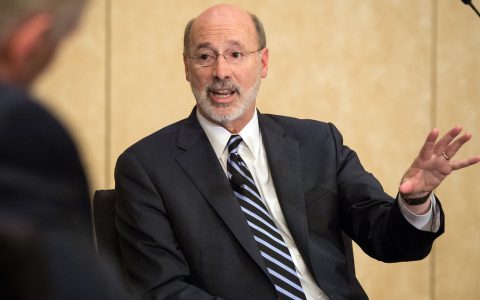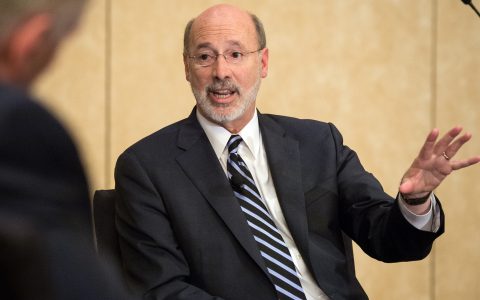Earlier this week, Pennsylvania senators unveiled the details of a cannabis legalization bill that, compared to the more restrained bills being considered elsewhere, is striking in both its scope and progressive approach. The bill, SB 350, set to be introduced by Democratic Sens. Daylin Leach and Sharif Street, emphasizes a thoughtful social equity program, provides a pathway for small businesses to engage in the industry, and even promotes environmental standards through a vape pen recycling program.
If passed and implemented, the bill has the potential to launch a thriving adult-use cannabis market in Pennsylvania. But whether it can make it past the state’s Republican-controlled House remains to be seen.
Among the bill’s most striking measures is the absence of a hard cap on business licenses. Unlike in states with strict limits on licenses, the Pennsylvania proposal would entertain applications from anyone who meets state regulatory standards and has the cash to buy in. “The application process is not regulatorily competitive, but will be economically competitive and there is no limit on the number of adult-use permits the state may distribute,” an online outline notes.The plan says there would still be certain barriers to vertically integrated businesses looking to simultaneously grow, process, and distribute cannabis, but tiered micro licenses will be available to anyone interested in solely growing cannabis. The proposal would also eliminate the state’s universal seed-to-sale tracking system.
Sen. Sharif Street
Home cultivation of up to six plants per household would be also be permitted, as well as a home delivery program. And while public consumption would remain prohibited, the bill would allow social consumption at licensed cannabis lounges.
SB 350 tackles questions of social justice head-on. The bill would automatically expunge all criminal convictions for possession of cannabis or paraphernalia as well as distribution of less than an ounce of cannabis. Anyone serving a prison sentence related solely to one of those offenses would receive a commutation, and all probation, parole, or pending criminal charges for those activities would be dismissed.
“Restorative Justice must be a part of any effort to legalize the use of cannabis anywhere. An end to the prohibition of cannabis in Pennsylvania is overdue,” Street wrote on Instagram. “The economic imperatives for our commonwealth are too great as is our moral mandate to correct the damage that disparate enforcement of our Marijuana Laws has done throughout numerous communities in Philadelphia and across the commonwealth.”
SB 350 would also establish a cannabis business institute to “teach people how to grow and process cannabis, how to comply with state and federal cannabis laws, and how to start and run a small business,” according to the accompanying fact sheet, which says the programs would come at no cost to the public. “Those who choose to complete the training program,” it says, “may apply for state grants and interest free loans, which they can use to start their own cannabis businesses.”
Although the bill is light on specifics when it comes to taxes, the majority of the tax revenue would go toward increasing the state’s public education subsidy. “School districts may at their discretion use this funding increase to invest in their school districts or reduce local property taxes in whatever proportion they wish,” the outline says.
Colleges and universities, meanwhile, would be able to grow and process cannabis in conjunction with related courses.
Despite having a Democratic governor and lieutenant governor—the latter of whom who is currently on a statewide cannabis listening tour—both houses of the state Legislature remain in Republican control, which could hurt its chance of passage. Yet merely the unveiling of SB 350 shows that Pennsylvania is serious about cannabis reform and could be on the cusp of enormous change.






